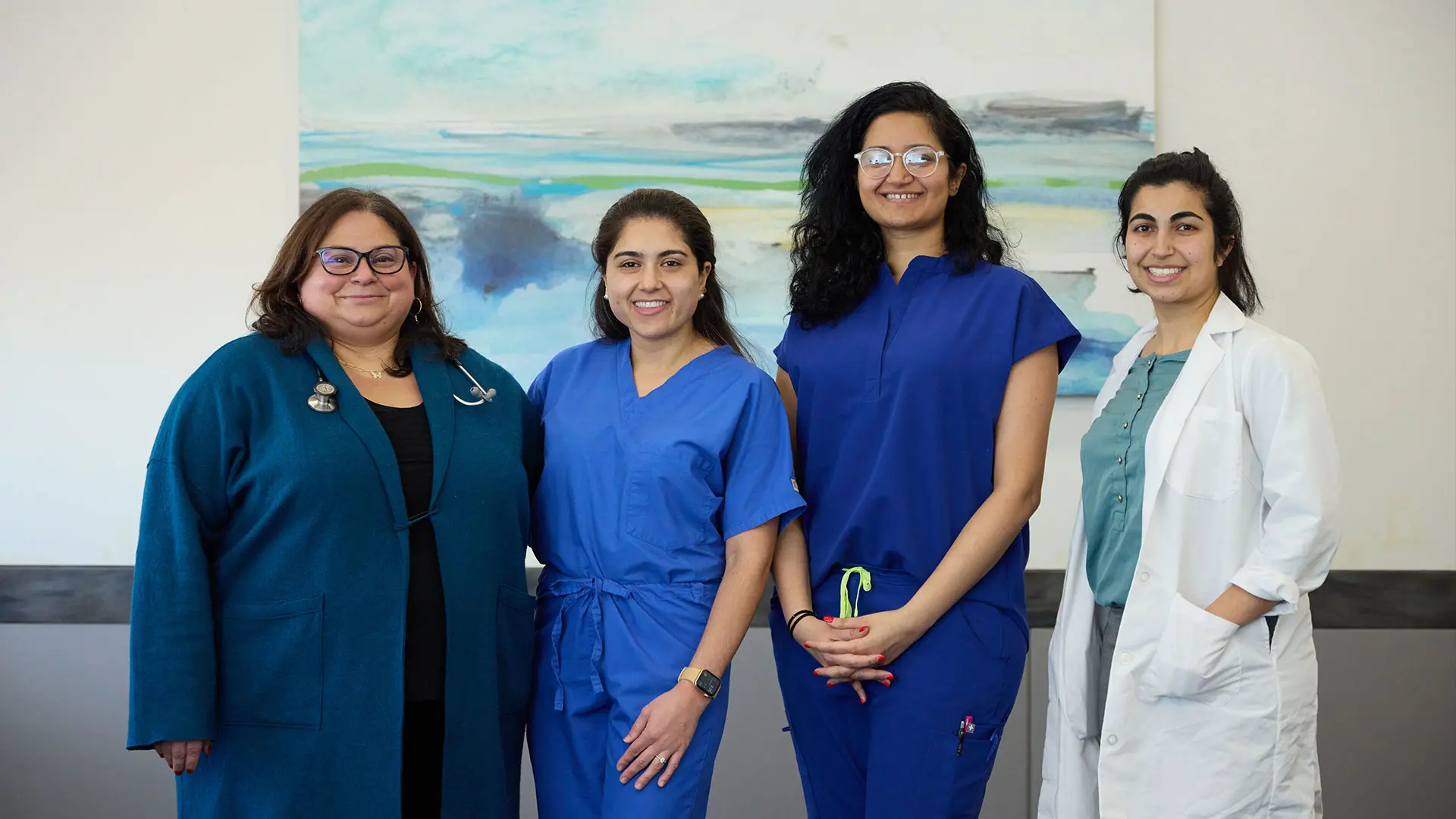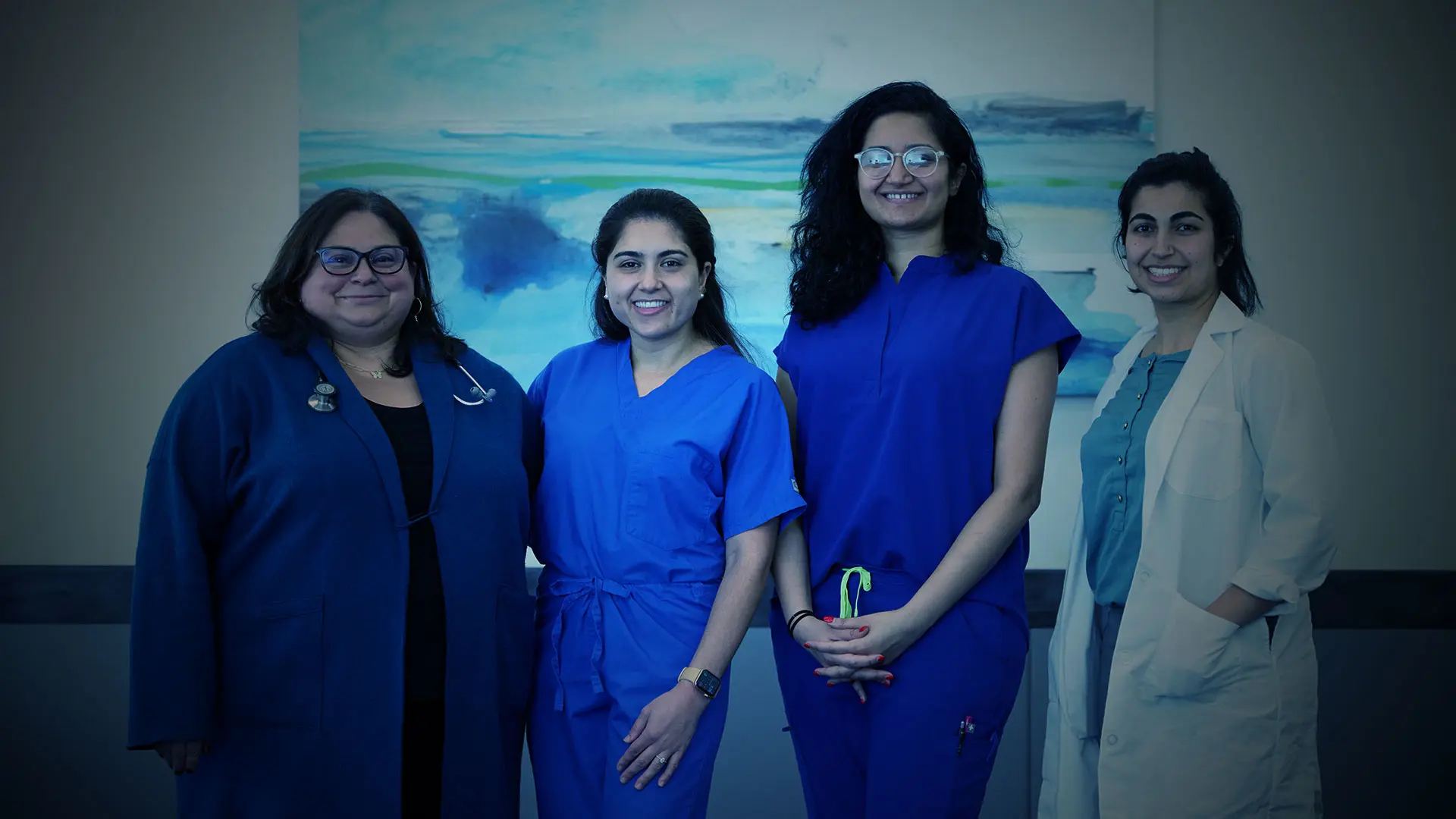Nearly 56 million Americans, or 16 percent of the population, are 65 or older, according to the United States Census Bureau. By 2030, when the youngest of baby boomers age into this category, it is projected that older Americans will make up 21 percent of the population. With advances in modern medicine, these older adults are living longer, oftentimes with complex chronic conditions, best alleviated through expert geriatrics and palliative care.
And yet, the U.S. Department of Health and Human Services projects that we will need to more than triple the number of geriatricians and palliative care specialists to adequately meet the needs of older adults and those with serious illness in 2030.
The Brookdale Department of Geriatrics and Palliative Medicine at the Icahn School of Medicine at Mount Sinai has developed a multipronged approach to care for older adults today and in the years to come. The approach spans the scope of the Brookdale Department’s work in clinical care, educational initiatives, and evidence-based research.
In anticipation of this growing need, the Brookdale Department has increased its faculty from six physician faculty when it was founded in 1982 to more than 80 faculty members today to care for our population. Physicians and other clinicians deliver direct patient care across the Mount Sinai Health System, while participating in research programs and providing clinical training and education to a variety of learners. Our learners include medical, nurse practitioner, and pharmacy students; medical residents; chaplaincy, pharmacy, and art therapy interns; and postgraduate social work, geriatrics, and palliative care fellows.
In addition, our physicians develop, launch, and lead innovative clinical programs to improve the quality of life for older adults and study the impact in order to establish new best practice standards. Such programs have led to decreased hospitalizations and readmissions, improved patient and caregiver satisfaction, and nationwide dissemination and implementation at other health care institutions.

Helen M. Fernandez, MD, MPH, left, with Geriatrics and Palliative Medicine fellows
The Brookdale Department has also significantly expanded its geriatrics and palliative medicine physician training programs. The first in the nation to offer a fellowship program in geriatrics and the fifth in palliative medicine, Mount Sinai has the largest and most comprehensive training program in the United States and has trained one in five such specialists across the country. All of the Brookdale Department’s training programs advance the broad goals of improving the quality of life for patients and their families, developing new educational approaches to teach this field throughout the continuum of medical education and training, and creating future leaders to affect system-wide change.
Geriatrics and Palliative Medicine Training Programs
The Brookdale Department’s educational mission is to incorporate geriatrics and palliative medicine into the genome of the American health care system. Physicians of all specialties will encounter older adults and persons with serious illness. With a pioneering training program that spans all levels of learners and all internal medicine specialties, the Brookdale Department begins education with a monthlong rotation in geriatrics and palliative medicine during medical school and during internal medicine residency training.
“One of the things we’ve tried to do is to influence medical school curriculum from Day 1 to make sure that we are integrating principles of both geriatrics and palliative care earlier in the curriculum,” says Helen M. Fernandez, MD, MPH, Vice Chair of Education and Professor of Geriatrics and Palliative Medicine at Icahn Mount Sinai. “It’s not that everyone will go into geriatrics or palliative care, but they’ll carry these skills and this approach into whatever specialty they go into.”
Fifty years ago, Mount Sinai was the first in the nation to offer a geriatrics fellowship program. Today, the Brookdale Department also offers a one-year Geriatrics Fellowship, a one-year Hospice and Palliative Medicine Fellowship, a two-year Integrated Geriatrics and Palliative Medicine Fellowship, a two-year LEAP Into Geriatrics Leadership Fellowship, and a two-year LEAP Hospice and Palliative Medicine (HPM) Fellowship. Currently, 33 physicians participate in the robust fellowship program.
Typically, within one year of fellowship graduation, 50 percent of the Brookdale Department’s students attain leadership positions; within six years, 100 percent have a leadership role. In response to this successful track record and the needs of its graduates, the Brookdale Department launched the LEAP Fellowships, which are two-year programs that train doctors to assume leadership positions and promote changes in health care that better meet the needs of older, frail, and seriously ill adults. The curriculum helps fellows “Learn, Explore, Advocate, and Promote” (LEAP) into leadership positions. The training emphasizes communication and leadership skills, health care policy and delivery knowledge, and programmatic development and management skills.
Anticipating the growing nationwide need for specialists as the population ages, the Brookdale Department recently introduced an innovative fellowship program aimed at doctors already board certified in internal, emergency, or family medicine. The Mid-Career Geriatrics and Palliative Medicine Fellowship is aimed at physicians who want formal training to complement their skills. Mid-career fellows spend approximately 20 percent of their time in training while simultaneously carrying out their existing clinical and leadership responsibilities. Mid-career physicians are seen as an important untapped group of potential future specialists.
“We need to push the envelope of training to meet the U.S. population needs,” says Dr. Fernandez. “We’re always looking for different ways to train leaders, and these programs, which we’re helping to disseminate to other health systems, are innovative models that bring more doctors into the fold who will touch a lot more people.”
Groundbreaking Research
As Mount Sinai continues to provide the best possible care for the elderly population of New York, its researchers are working to meet the workforce challenges by enhancing our understanding of disease and its burdens; evaluating the needs of patients and caregivers; understanding caregiver needs and the role community health workers (CHWs) can play; and reimagining care delivery. In the past five years, Brookdale faculty have received more than $37 million in funding and published more than 500 articles in peer-reviewed professional journals.
“The medical community needs to redesign a health care system that focuses on the needs of older adults, persons with serious illness, and their caregivers,” says R. Sean Morrison, MD, Ellen and Howard C. Katz Chair of the Brookdale Department. “As we look to the future, our goal is to continue to grow the geriatrics and palliative medicine workforce and to ensure that we are providing the highest quality of care for the people in our community, while serving as a national model for others.”
